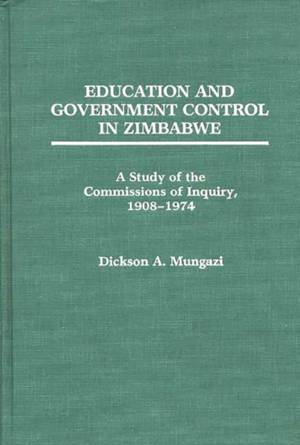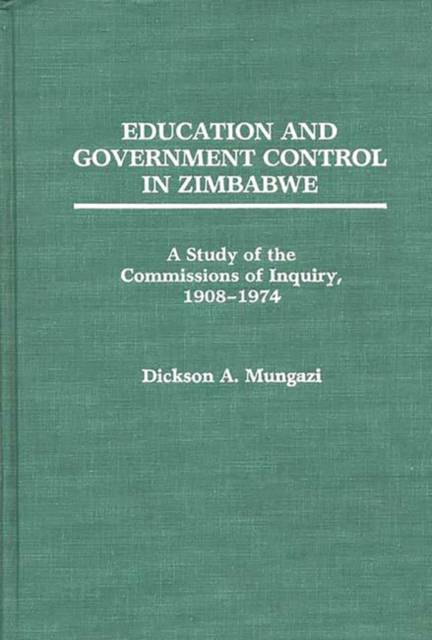
- Afhalen na 1 uur in een winkel met voorraad
- Gratis thuislevering in België vanaf € 30
- Ruim aanbod met 7 miljoen producten
- Afhalen na 1 uur in een winkel met voorraad
- Gratis thuislevering in België vanaf € 30
- Ruim aanbod met 7 miljoen producten
Education and Government Control in Zimbabwe
A Study of the Commissions of Inquiry, 1908-1974
Dickson Mungazi [Deceased]Omschrijving
This pioneering study argues that the bitter civil war that thrust Zimbabwe into international headlines from 1966 to 1979 had its roots in the reports issued by the colonial commissions of inquiry into education. As the author explains in his introduction, these commissions and the reports they issued, which reinforced separate educational systems for African and white students, reached far beyond educational policy in their effects. Basing his work on original documents and materials which have not appeared in print before--most of which were only recently declassified by the government of Zimbabwe--the author shows the profound influence these reports had on government policy, on government control of opportunity in general, and on the relationships between and among institutions within the country.
Following an introductory overview, Mungazi turns to a discussion of the specific issues which the commissions were appointed to investigate. Separate chapters are then devoted to the circumstances surrounding the naming of commissions, their findings and recommendations, and the implications of implementing their recommendations on the character of colonial society itself. This chronological treatment enables the author to focus particularly on how the recommendations of the commissions constituted a sequence of developments that led inevitably to conflict. The final chapter draws some conclusions regarding the social environment that produced a major national conflict and discusses what might be learned from the tragic events that took place in Zimbabwe from 1966 to 1979.Specificaties
Betrokkenen
- Auteur(s):
- Uitgeverij:
Inhoud
- Aantal bladzijden:
- 154
- Taal:
- Engels
Eigenschappen
- Productcode (EAN):
- 9780275931704
- Verschijningsdatum:
- 19/01/1990
- Uitvoering:
- Hardcover
- Formaat:
- Genaaid
- Afmetingen:
- 156 mm x 234 mm
- Gewicht:
- 403 g

Alleen bij Standaard Boekhandel
Beoordelingen
We publiceren alleen reviews die voldoen aan de voorwaarden voor reviews. Bekijk onze voorwaarden voor reviews.











